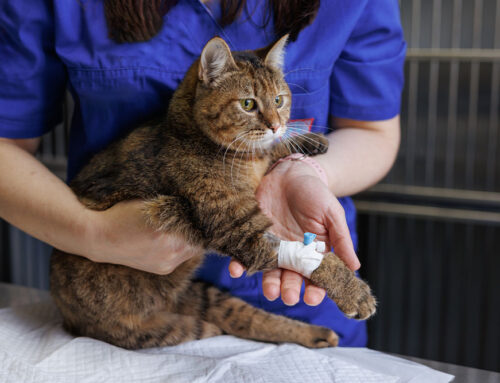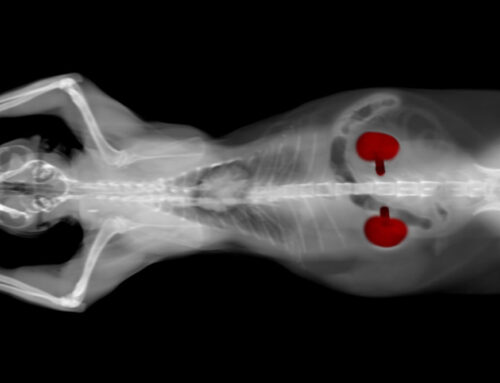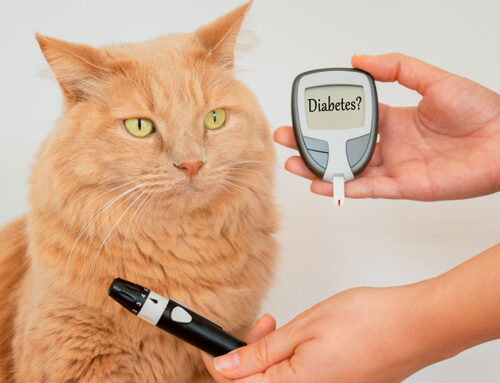When your pet slows down, tires more easily, or starts showing signs of discomfort, it’s easy to attribute it to aging or changes in routine. But in many cases, these subtle shifts may point to something more serious- heart disease.
At Greenfield Veterinary Clinic in Greenfield, Wisconsin, we understand the anxiety that comes with any health concern, especially one involving your pet’s heart. Whether you’re noticing the first signs or managing a confirmed diagnosis, we’re here to help you understand your options and support your pet’s long-term well-being.
What Is Heart Disease in Pets?
Heart disease in dogs and cats refers to any condition that impairs the heart’s ability to pump blood efficiently. It can affect the heart muscle, valves, blood vessels, or electrical signaling system.
There are two main types:
- Congenital heart disease is present at birth and typically involves structural defects.
- Acquired heart disease develops over time, often as pets age, due to infections, chronic conditions, or lifestyle factors.
Both forms can have a significant impact on your pet’s health- but early detection and proactive care can improve quality of life and outcomes.
Causes of Heart Disease in Dogs and Cats
Congenital Heart Defects
Congenital heart conditions are typically diagnosed in puppies or kittens and include abnormalities like:
- Patent ductus arteriosus (PDA)
- Valve malformations
- Septal defects
Some breeds are predisposed to congenital heart issues. If your pet belongs to a high-risk breed, it’s worth learning more about breed-specific health risks and discussing screening with your veterinarian.
Acquired Heart Conditions
Acquired heart disease is more common and typically develops in adulthood. Common causes include:
- Age-related degeneration of heart valves (e.g., mitral valve disease in older dogs) – Learn more here.
- Dilated cardiomyopathy – A weakening of the heart muscle.
- Heartworm disease
- High blood pressure (hypertension)
Many of these conditions can be managed with early intervention, making regular veterinary checkups essential- especially for senior pets.
Early Warning Signs of Heart Disease
Heart disease often develops silently, with symptoms emerging gradually. Here are common early signs to watch for:
- Decreased stamina or reluctance to exercise
- Persistent coughing, especially at night or after activity
- Changes in breathing– faster or more effortful breathing
- Lethargy or increased sleep
- Appetite loss or unexplained weight changes
In cats, symptoms may be even more subtle. They rarely cough, but may hide more often, lose weight, or show less interest in play. As the condition advances, you might notice:
- Difficulty breathing or open-mouth breathing
- Fainting or collapse
- Swollen abdomen (due to fluid buildup)
For a detailed checklist, visit Signs of Heart Disease in Dogs.
How Heart Disease Progresses
Understanding the stages of heart disease helps you recognize how it may impact your pet over time:
- Asymptomatic stage – The heart is affected, but there are no outward signs. Diagnosis is usually made via routine screening or incidentally during another exam.
- Mild to moderate disease – Pets begin to show subtle clinical signs, such as coughing or fatigue.
- Advanced heart failure – Severe symptoms develop, including fluid accumulation in the lungs or abdomen, respiratory distress, and reduced organ function.
Regular monitoring allows us to intervene early- often before symptoms become severe.
Diagnostic Tools We Use at Greenfield Veterinary Clinic
When you bring your pet in for a heart evaluation, we use multiple diagnostic tools to assess their condition:
- Physical Exam – We listen for heart murmurs or irregular rhythms and check lung sounds and pulse quality.
- Electrocardiogram (EKG) – Detects electrical abnormalities that may affect the heart’s rhythm. Learn more about EKGs in dogs.
- Echocardiogram (Heart Ultrasound) – Offers detailed images of the heart’s structure and motion. Explore how this works.
- Chest X-rays – Help evaluate heart size and detect fluid in the lungs.
- Blood Pressure Monitoring – Especially important in older pets or those with concurrent diseases.
Treatment Options for Heart Disease
Heart disease is often manageable, especially when diagnosed early. Our treatment plans are tailored to your pet’s condition, lifestyle, and stage of disease.
Medical Management
- Diuretics to reduce fluid buildup
- ACE inhibitors to improve blood flow and lower pressure
- Pimobendan to enhance heart contractility in dogs with certain conditions
Surgical Intervention
Surgery may be recommended for some congenital defects but is less commonly used in acquired cases.
Lifestyle Modifications
- Controlled, gentle exercise
- Low-sodium diet
- Stress reduction and routine consistency
In some cases, we may incorporate integrative therapies like supplements or acupuncture, depending on your pet’s needs.
Why Early Treatment Matters
Prompt treatment can:
- Slow disease progression
- Alleviate painful or distressing symptoms
- Reduce the risk of secondary complications like arrhythmias or organ damage
- Improve your pet’s energy, comfort, and quality of life
Left untreated, heart disease can lead to sudden cardiac arrest, respiratory failure, or a significant decline in your pet’s well-being.
Supporting Your Pet at Home
Heart disease may require you to adjust your pet’s daily routine:
- Shorter, more frequent walks instead of strenuous activity
- Regular medication schedules
- Monitoring breathing rate while resting (ask us how to do this at home)
- Watch for signs of fluid buildup, such as bloating or labored breathing
Pets with heart conditions often thrive with consistent care and a calm, supportive environment.
Preventing and Monitoring Heart Disease
You can’t prevent every case of heart disease- but you can reduce risk and catch problems early with:
- Annual wellness exams, including heart screening
– Especially important for senior pets. Read about preventive testing. - Routine bloodwork and blood pressure checks
- Heartworm prevention– a vital step in avoiding heartworm-related heart disease
Preparing for Your Appointment
To get the most out of your visit, bring:
- A list of current medications or supplements
- Notes on your pet’s recent behavior or changes
- Videos of coughing, breathing patterns, or activity level if available
Frequently Asked Questions
Can heart disease be cured?
Some congenital defects can be surgically corrected. Most acquired conditions are managed long-term with medication and lifestyle adjustments.
Is heart disease painful for pets?
While heart disease doesn’t always cause direct pain, associated symptoms like difficulty breathing or fluid buildup can cause significant discomfort- treatment helps reduce this.
Can pets still enjoy exercise?
Yes- with modifications. Short, gentle walks or low-impact play are often beneficial. We’ll guide you on safe activity levels for your pet’s condition.
We’re Here for You and Your Pet
At Greenfield Veterinary Clinic, we know that a heart disease diagnosis can be overwhelming. You’re not alone in this. Our experienced and compassionate team is here to support your pet’s journey with the highest level of care- from diagnosis to treatment and beyond.
If you’ve noticed any changes in your pet’s energy, breathing, or behavior, schedule an appointment today. Together, we can help your pet live a more comfortable, joyful life- one heartbeat at a time.








Leave A Comment